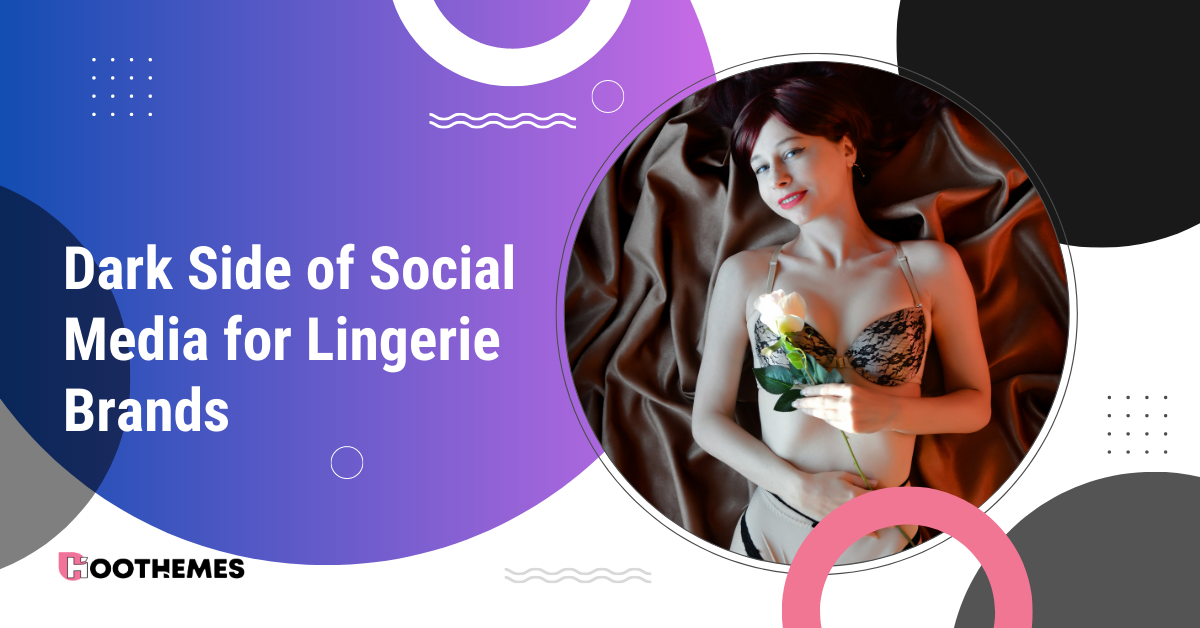In today’s digital era, social media influencer marketing has become a popular tool for promoting brands, products, and services such as lingerie brands. Brands and businesses pay influencers to promote their products on social media platforms such as Instagram, Facebook, Twitter, and YouTube. While influencer marketing can be effective, there is a dark side to it that many people don’t know about. This article will discuss the dark side of social media influencer marketing and its impact on the industries such as lingerie brands.
The Rise of Lingerie Brands through Influencer Marketing
Lingerie is a popular product category that has seen significant growth in recent years. Lingerie brands have capitalized on influencer marketing to promote their products to a broader audience. Many lingerie brands collaborate with social media influencers to create sponsored posts and videos that showcase their products. These posts often feature models wearing the brand’s lingerie, which can influence people’s perception of what “sexy” is supposed to look like.
The Sexualization of Women’s Bodies
Influencer marketing has contributed to the sexualization of women’s bodies in media. Many lingerie brands use models who conform to traditional beauty standards to promote their products. This can lead to body shaming, as people who don’t conform to these standards may feel excluded or marginalized. Furthermore, the sexualization of women’s bodies can contribute to negative body image, which can lead to mental health issues like anxiety and depression.
Plus Size Lingerie and Body Positivity
In recent years, there has been a growing movement towards body positivity and inclusivity in the fashion industry. However, this movement has been slow to catch on in the lingerie industry, which has traditionally catered to a narrow definition of beauty. Influencer marketing has been used to promote plus-size lingerie and showcase diverse body types. However, some argue that the use of plus-size models in influencer marketing can still contribute to the objectification of their bodies.
Lingerie Porn and the Sexualization of Intimacy
Another dark side of influencer marketing is the promotion of lingerie porn. Some influencers use their platforms to promote erotic content that is often objectifying and degrading to women. This can normalize unhealthy sexual behaviors and perpetuate unrealistic expectations about sex and intimacy. Moreover, the promotion of lingerie porn can contribute to the commodification of women’s bodies, which can be harmful in many ways.
The Impact of Influencer Marketing on Society
The impact of influencer marketing on society is complex and multifaceted. While it can be an effective tool for promoting brands and products, it can also perpetuate harmful stereotypes and contribute to negative social norms. The pressure to conform to societal beauty standards can lead to mental health issues, like low self-esteem and body dysmorphia. Moreover, the promotion of unrealistic beauty standards can contribute to the perpetuation of systemic oppression and discrimination.
The Future of Lingerie Brands and Influencer Marketing
Despite its drawbacks, influencer marketing is likely to continue to be a popular tool for promoting lingerie brands. However, the industry is beginning to see a shift towards more inclusive and diverse representation. Some brands are collaborating with influencers who promote body positivity and inclusivity, which can help to challenge traditional beauty standards. Moreover, there is a growing movement towards sustainable fashion, which can help to reduce the negative impact of influencer marketing on the environment.
In conclusion, the dark side of social media influencer marketing is a complex issue that needs to be addressed. While it can be an effective tool for promoting lingerie brands, it can also perpetuate harmful stereotypes and contribute to negative social norms. Brands and influencers have a responsibility to promote body positivity and inclusivity and challenge traditional beauty standards. Moreover, consumers have a responsibility to be critical of the content they consume and support brands that align








